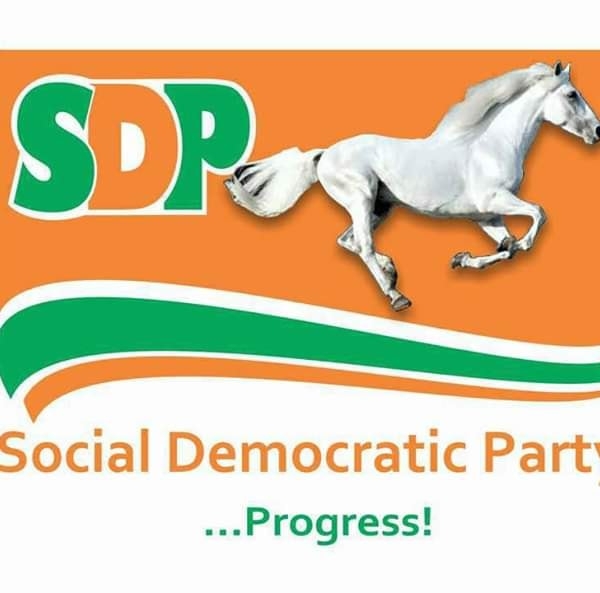The Social Democratic Party (SDP) in Gombe State, Nigeria, has been plunged into a leadership crisis, marked by accusations of financial mismanagement, lack of transparency, and undemocratic practices. The state chairman, Adamu Modibbo, has been suspended by a faction of the state executive committee, who allege that he has been running the party as a personal fiefdom, neglecting party structures and failing to account for financial donations. This faction, led by the Welfare Secretary, Usman Degri, has accused Modibbo of sidelining key party members, operating without a proper secretariat, and conducting party affairs with a lack of transparency and inclusiveness. They further claim that Modibbo has failed to provide any financial reports despite receiving donations, uses his residence as the party’s operational base, and has unilaterally made candidate selections without consulting the state structure. The faction has appointed the party’s State Secretary, Aaron Yakubu, as the acting State Chairman.
In a dramatic counter-move, Modibbo’s loyalists have retaliated by suspending four members of the opposing faction, accusing them of gross misconduct, political hypocrisy, and attempts to destabilize the party. Abdulkadir Kumo, the Publicity Secretary aligned with Modibbo, announced the suspensions, emphasizing the need to maintain party discipline and unity. The suspended individuals include Aaron Yakubu, who had been named acting chairman by the opposing faction, along with Usman Yahaya, Lukaman Adamu Elkanem, and Musa Muhammad Ali. Modibbo’s faction has also appointed an acting chairman for the Gombe Local Government chapter and established a disciplinary committee to investigate the matter and submit its findings. Kumo has warned against any attempts by the suspended members to act as party officials, stating that such actions would be considered an affront to party authority.
The internal conflict within the SDP Gombe State chapter raises crucial questions about financial accountability, internal democracy, and the party’s ability to effectively compete in future elections. The accusations of financial impropriety against Modibbo, if proven, could severely damage the party’s credibility and erode public trust. The lack of transparent financial reporting undermines the principles of good governance and raises concerns about the potential misuse of party funds. The accusations of unilateral decision-making and the exclusion of key stakeholders highlight a broader issue of internal democracy within the party. Such practices can lead to resentment and factionalism, weakening the party’s overall strength and cohesiveness.
The competing suspensions and accusations illustrate the deep divisions within the SDP Gombe State chapter and the escalating power struggle between factions. The conflicting narratives and claims make it challenging to discern the full truth of the situation. However, the public airing of these internal disputes has already created a negative image for the party and could potentially deter potential members and supporters. The accusations of external influence further complicate the matter and suggest that the conflict may be driven by factors beyond internal disagreements over party management. The allegations that some individuals within the party are acting on behalf of rival political parties raise concerns about potential sabotage and manipulation.
The crisis within the SDP Gombe State chapter underscores the importance of establishing clear internal mechanisms for conflict resolution and ensuring adherence to democratic principles within political parties. The absence of effective internal processes for addressing grievances and resolving disputes can lead to escalating conflicts and factionalism, ultimately jeopardizing the party’s unity and effectiveness. The current situation highlights the need for the national leadership of the SDP to intervene decisively and mediate a resolution between the warring factions. Failure to address the root causes of the conflict and restore order within the state chapter could have long-term consequences for the party’s prospects in Gombe State and beyond.
The future of the SDP in Gombe State remains uncertain. The internal strife and leadership crisis could potentially cripple the party’s ability to effectively mobilize and contest future elections. The ongoing conflict risks alienating voters and undermining the party’s credibility. The national leadership of the SDP must take swift and decisive action to resolve the crisis and restore unity within the state chapter. A thorough and impartial investigation into the allegations of financial mismanagement and undemocratic practices is essential to ensure accountability and rebuild trust. The party must also prioritize strengthening its internal democratic processes to prevent future conflicts and ensure that all members have a voice in party affairs. The ability of the SDP to overcome this crisis and emerge stronger will depend on the leadership’s commitment to transparency, accountability, and internal democracy. The resolution of this conflict will be a critical test of the party’s ability to effectively govern and represent the interests of the people of Gombe State.


